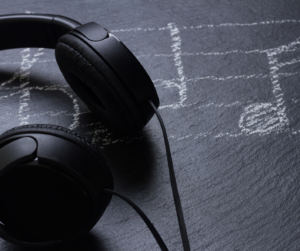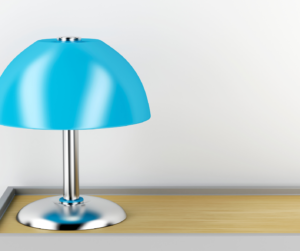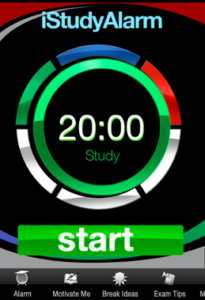Setting up a Learning and Study Environment at Home
If you are learning from home via online teaching, doing some self-directed learning or studying for a test or exam, the environment you work in can make a big difference to your productivity and results. Here are some simple tips, ideas and strategies…
Get organised
The 6 P’s of success, Proper Planning Prevents Pretty Poor Performance are extremely relevant to at home learning and study. Being organised and having a plan will certainly help keep you focused and can even half your learning time! Have you ever spent the first 30 minutes shuffling papers, looking at your notes and wondering what you are supposed to be doing?
Make a daily plan of what you are going to study or learn. Create a timetable in small blocks of time and stick to it. Create mini rewards for yourself for staying on track. Knowing what you want to achieve will minimise the wasted time and help focus you. Create small achievable goals. For example, practice and memorise three Maths formulas, brainstorm the outline of a Classics essay, write 200 words for my English assignment or create 20 flash cards for my French vocabulary.
Music or Silence?
Some people prefer to study in silence while others prefer to study with music in background. If you prefer a quiet environment, and there are noise distractions at home, wear some headphones, ear plugs or ear muffs to dampen the sound.
 If you prefer to study with some background music, the type you choose is very important. If you study to music with words, your brain will often focus on the words and not on what you are learning. Instrumental tracks of your favourite music may also not be useful because your brain is likely to still put the words in.
If you prefer to study with some background music, the type you choose is very important. If you study to music with words, your brain will often focus on the words and not on what you are learning. Instrumental tracks of your favourite music may also not be useful because your brain is likely to still put the words in.
Alternatively Baroque music is the most useful. This is because it has 50-80 beats per minute which is equivalent to your resting heart rate and helps activate your long term memory. Some great Baroque composers include: Bach, Handel, Pachelbel, Vivaldi, Telemann, and Corelli.
The myth of multi-tasking
Research shows that any time a person moves attention from one task to another one, it adds an average of 25 per cent to the time it takes to complete the initial task. It also affects the quality of work people do. When people switch reactively from one task to another, they are trading depth for breadth. If you are listening to the words of the music, rather than having quiet classical tracks in the background, it is most liekly difficult to focus on the information being learned.
Minimise the clutter
Clutter has an impact on your brain. Excess things in your surroundings can have a negative impact on your ability to focus and process information. That’s exactly what neuroscientists at Princeton University found when they looked at people’s task performance in an organised versus disorganised environment. The results of the study showed that physical clutter in your surroundings competes for your attention, resulting in decreased performance and increased stress. Similar to what multitasking does to your brain, physical clutter overloads your senses, making you feel stressed, and impairs your ability to think creatively. Ensure you have a clean and tidy study environment, which also means turning off distractions such as social media and YouTube.
Study with low lighting
 Lighting shouldn’t be too bright in your study area. Bright light reflecting off a white page can stress your eyes and make learning harder. Dr Rita Dunn’s research shows for up to 70% of students, studying with low lighting is best.
Lighting shouldn’t be too bright in your study area. Bright light reflecting off a white page can stress your eyes and make learning harder. Dr Rita Dunn’s research shows for up to 70% of students, studying with low lighting is best.
Did you ever read under the bed covers when you were very young? Your parents probably told you you’d ruin your eyesight. This isn’t true. For most children and teenagers, low lighting is the most effective. In fact, as we get older, into our mid-20s, our eye muscles start to weaken and we need brighter light and sometimes glasses.
If possible, avoid fluorescent lights as these flicker at a different rate than your brain and interrupt brain processing. They can also cause tiredness, lack of motivation and even headaches.
Study at your best thinking time
Are you a morning, afternoon or evening person? Study when you are most alert. If you are a morning person, get up an hour earlier than normal and study. If you prefer to stay up late at night, study during this time. Make sure you study in a place where you are not going to be disturbed. You might prefer to work at a table or desk, you might like to lie on the floor or your bedroom. A word of warning though, avoid lying on your bed as you are likely to fall asleep!
Changes to the circadian rhythm occur during adolescence, when most teens experience a sleep phase delay. This shift in teens’ circadian rhythm causes them to naturally feel alert later at night, making it difficult for them to fall asleep before 11:00 pm. Since most teens have early school start times along with other commitments, this sleep phase delay can make it difficult to get the sleep teens need – an average of 9 1/4 hours, but at least 8 1/2 hours. It you are learning from home and have a choice about the time you do your learning a later start might be useful.
Study & learn in small chunks
 Again the research is clear, smaller chunks of time are better than long study and learning sessions. It is recommended, especially if you are learning something challenging, or are lacking in motivation to study for 20 minutes and take a five minute break. During the five minute break, make sure you get up and move, have a mini dance party!, drink some water or perhaps eat some brain food. To help with this and for more tips and ideas, download the iStudyAlarm on your smartphone or device.
Again the research is clear, smaller chunks of time are better than long study and learning sessions. It is recommended, especially if you are learning something challenging, or are lacking in motivation to study for 20 minutes and take a five minute break. During the five minute break, make sure you get up and move, have a mini dance party!, drink some water or perhaps eat some brain food. To help with this and for more tips and ideas, download the iStudyAlarm on your smartphone or device.
For more study environment tips watch the Study Enviro Rap on YouTube. Please Click Here
Tags: Home schooling, Karen Boyes, Karen Tui Boyes, learning at home, music, Study Environment, Study Smart
Published on Saturday, April 18th, 2020, under Study Skills
